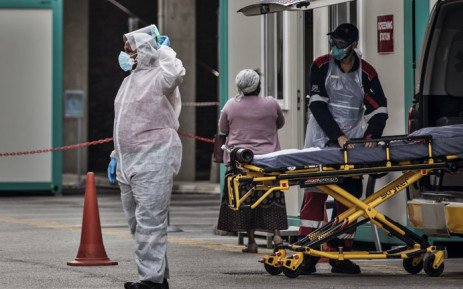
BY PHYLLIS MBANJE
There are growing concerns that health workers in Zimbabwe, Mozambique, Eswatini and Malawi are struggling to treat escalating numbers of COVID-19 patients in the absence of a vaccine to protect them from the virus.
As a highly infectious new strain of COVID-19 spreads through southern Africa, health workers are bearing the brunt of the pandemic with many getting infected. In light of this, the Doctors Without Borders (MSF), has called for equitable distribution of vaccines, prioritising healthcare workers.
“We are appalled by the inequitable distribution of COVID-19 vaccines across the world,” said MSF director of operations Christine Jamet.
Speaking from Geneva, Jamet said: “While many wealthy countries started vaccinating their health workers and other groups nearly two months ago, countries such as Eswatini, Malawi, Zimbabwe and Mozambique, which are struggling to respond to this pandemic, have not received a single dose of vaccine to protect the most at risk people, including frontline health staff.”
In Zimbabwe, last month was exceptionally difficult.
January alone accounted for more than half of the country’s confirmed COVID-19 cases and two-thirds of the total deaths since the start of pandemic in March last year.
Throughout the pandemic, MSF has been supporting local health authorities in Harare with COVID-19 screening and referrals, health promotion, health education, access to water and laboratory services.
- Chamisa under fire over US$120K donation
- Mavhunga puts DeMbare into Chibuku quarterfinals
- Pension funds bet on Cabora Bassa oilfields
- Councils defy govt fire tender directive
Keep Reading
“In response to the rising cases during the second wave, MSF has begun an emergency intervention to increase bed capacity, improve quality of care and service organisation in local hospitals working in partnership with the Health ministry and the City of Harare.
“People in the poorest countries seem to be at the back of the queue to access these crucial vaccines,” Jamet said.
“There is need for vaccination in countries in southern African that are struggling to respond to the aggressive spread of the new virus strain, which is overwhelming their health systems.”
While Mozambique, Eswatini, Zimbabwe and Malawi go without vaccines, wealthier nations are hoarding vaccines with the intention to vaccinate beyond the priority groups.
“It would be indefensible if some countries started to vaccinate their lower-risk citizens, while many countries in Africa are still waiting to vaccinate their very first frontline health workers,” Jamet said.
“This totally goes against the World Health Organisation’s equitable allocation framework. Not only will it prolong the pandemic, but it will put even more lives at risk.
“We urge governments who have secured more doses than they need for vaccinating their high-risk groups to urgently share their doses, so that other countries can start vaccinating. This is a global pandemic that requires a global spirit of solidarity if we truly hope to bring it under control.”
“MSF calls on vaccine manufacturers to ensure that priority is given to those countries that are in urgent need of protecting their healthcare staff. MSF stands ready to provide logistical support to high priority countries that were denied access to Pfizer/BioNTech vaccine through Covax because of their limited cold chain management capacity,” said MSF director of operations, Isabelle Defourny.
Follow Phyllis on Twitter @pmbanje











